
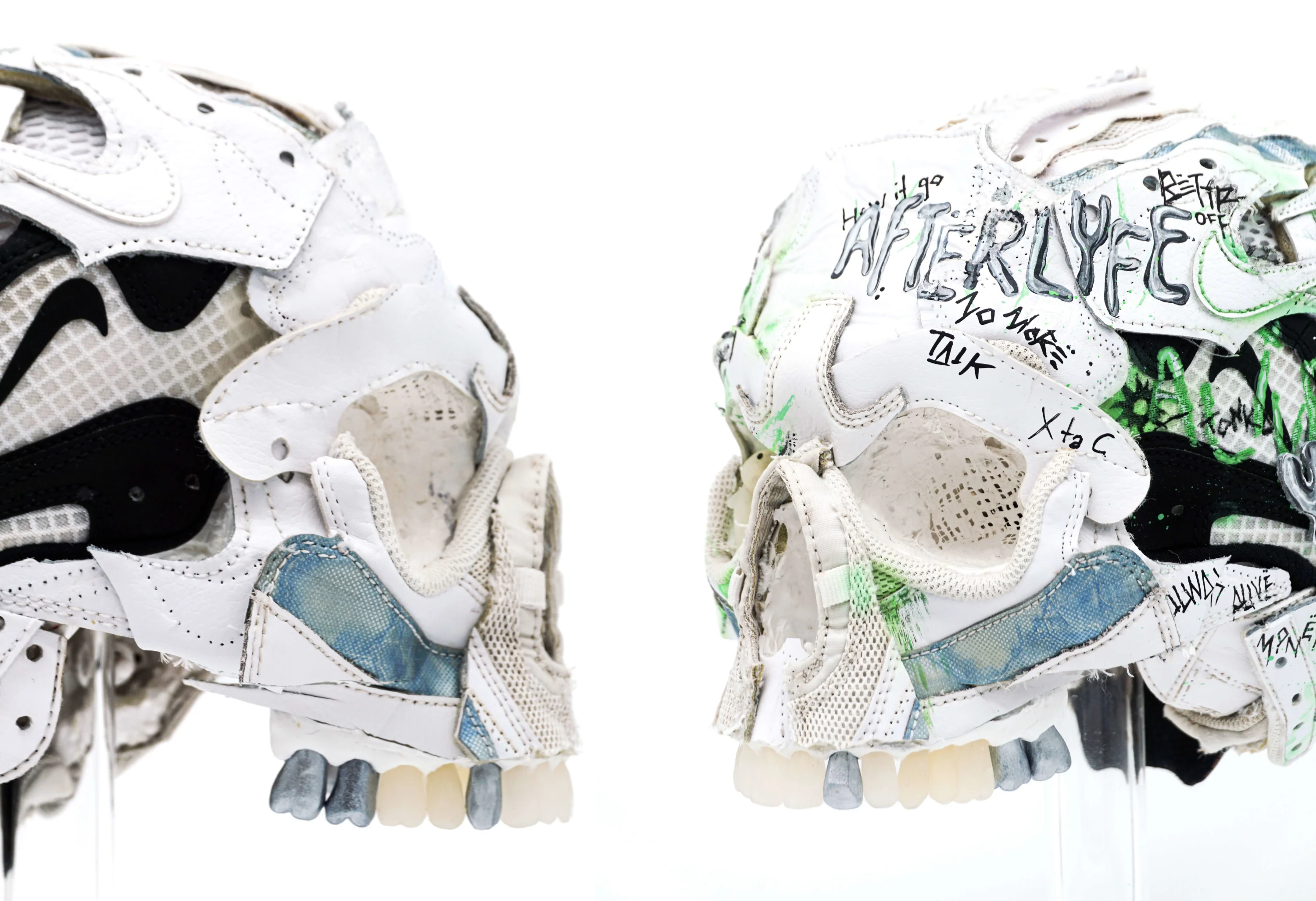
Ever heard of a “sneaker sculpture”? Well, you have now. After Melicka Fouri grew tired of simply painting shoes, she forged her own unique path, learning on the job how to turn shoes into explosive art pieces and taking her practice three-dimensional. She tells writer Sam Diss about the painstaking process that goes into the sculptures, and the personal emotions and experiences that often inspire them.
Melicka Fouri finds meaning in explosions. Her turbulent sculptural works use sneakers as a canvas to play with meticulous dissection and reconstruction, creating pieces varying from the diffuse to the self-contained: one is an intricate, hand-cut composite of dozens of magically floating fragments, visceral moments frozen in time, representing the first blush of excitement in a new friendship; another seems to implode before our eyes, disintegrating as if supremely weather-beaten, designed to evoke a sustained period of her depression, the piece’s innards bursting outwards even as it threatens to collapse in on itself like a dying star.
“I’ve learned that if I’m able to make art from what I’m feeling,” she says, “I can really express myself in a way which physicalizes what I’m going through. I can hold it up and visualize something I can’t always articulate. It helps me let go. I can put it on a shelf and feel like it’s no longer part of me.”
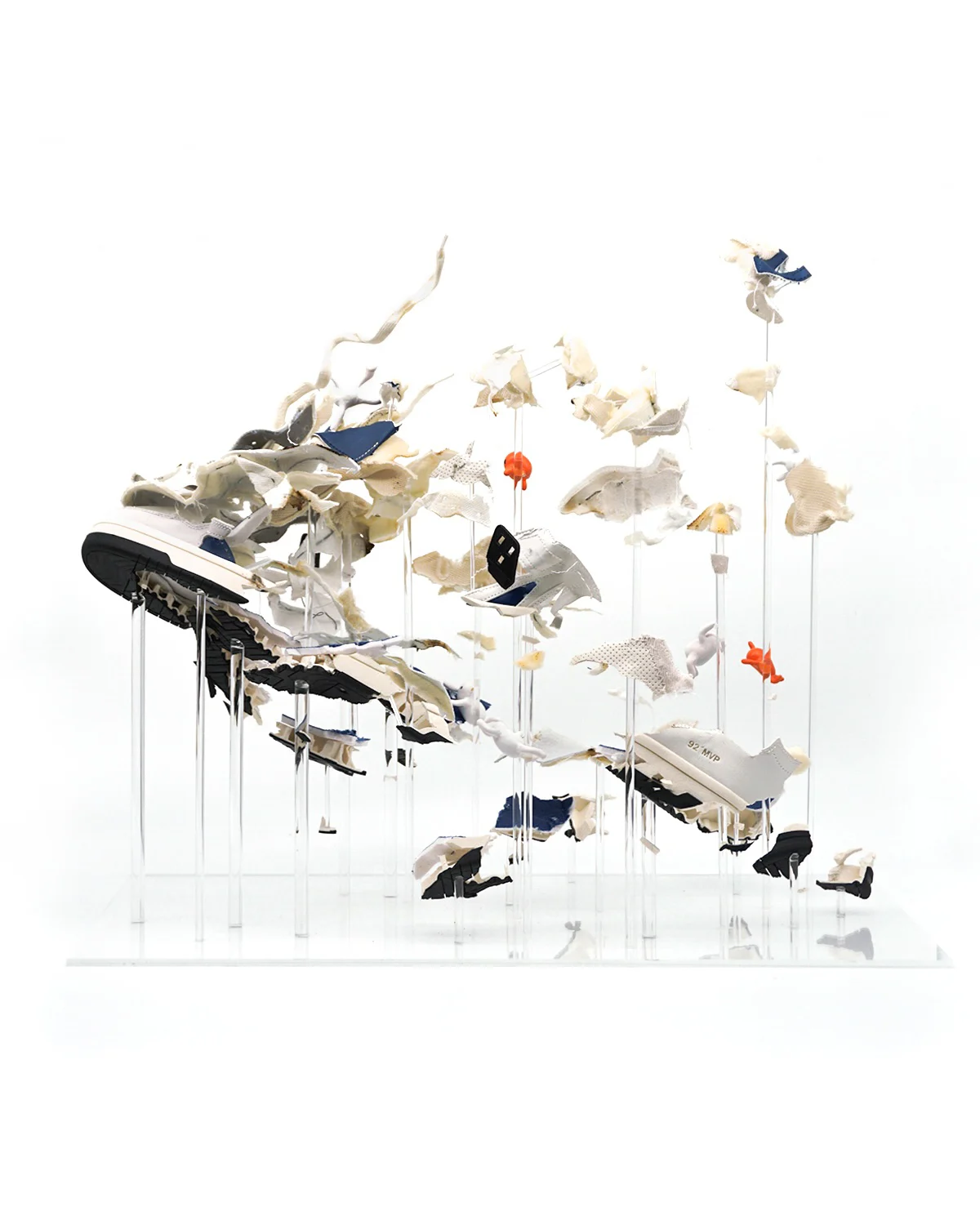
But things don’t always have to go quite that deep. One of her early works featured the muscular tentacles of a purple-orange polymer clay octopus erupting from the sole of a pristine white Nike Air Force One sneaker because, well, Fouri thinks octopuses are cool. This melding of the meaningful and irreverent has allowed her explorations to become far more abstract, pushing the limits of what sneakers can signify.
“I call them ‘sneaker sculptures’,” says the 21-year-old, talking via choppy video call from Coventry in England’s West Midlands. “But when I say that, I have to get my photos up because nobody knows what ‘sneaker sculpture’ means.” Finding connection through her work remains central. “It’s so easy to bond with people through their shoes,” she adds. “There’s such emotional attachment. It’s not an everyday purchase, but sneakerheads take it to the next level, attaching story to their shoes. I’ve been able to take that further with my art.”
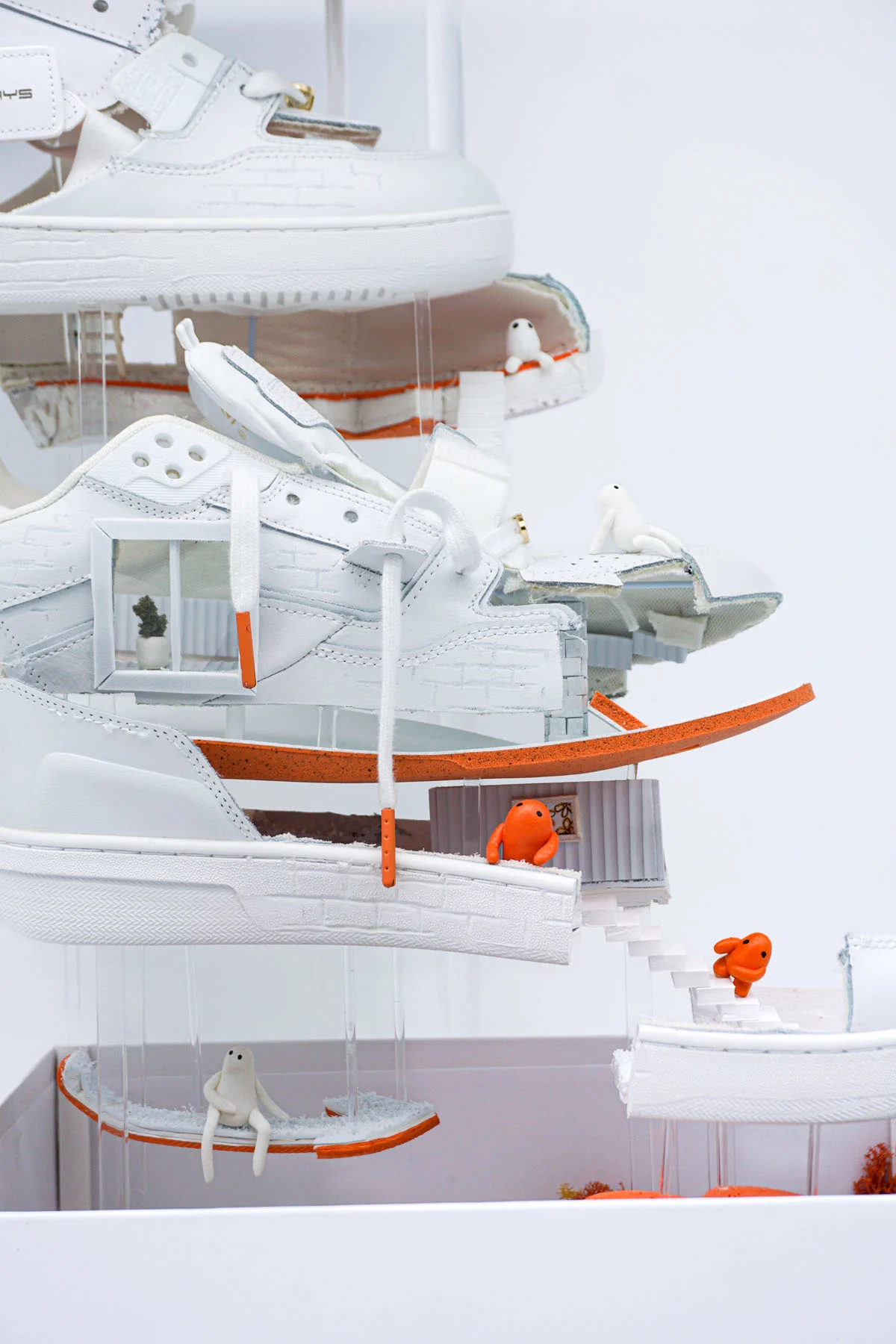
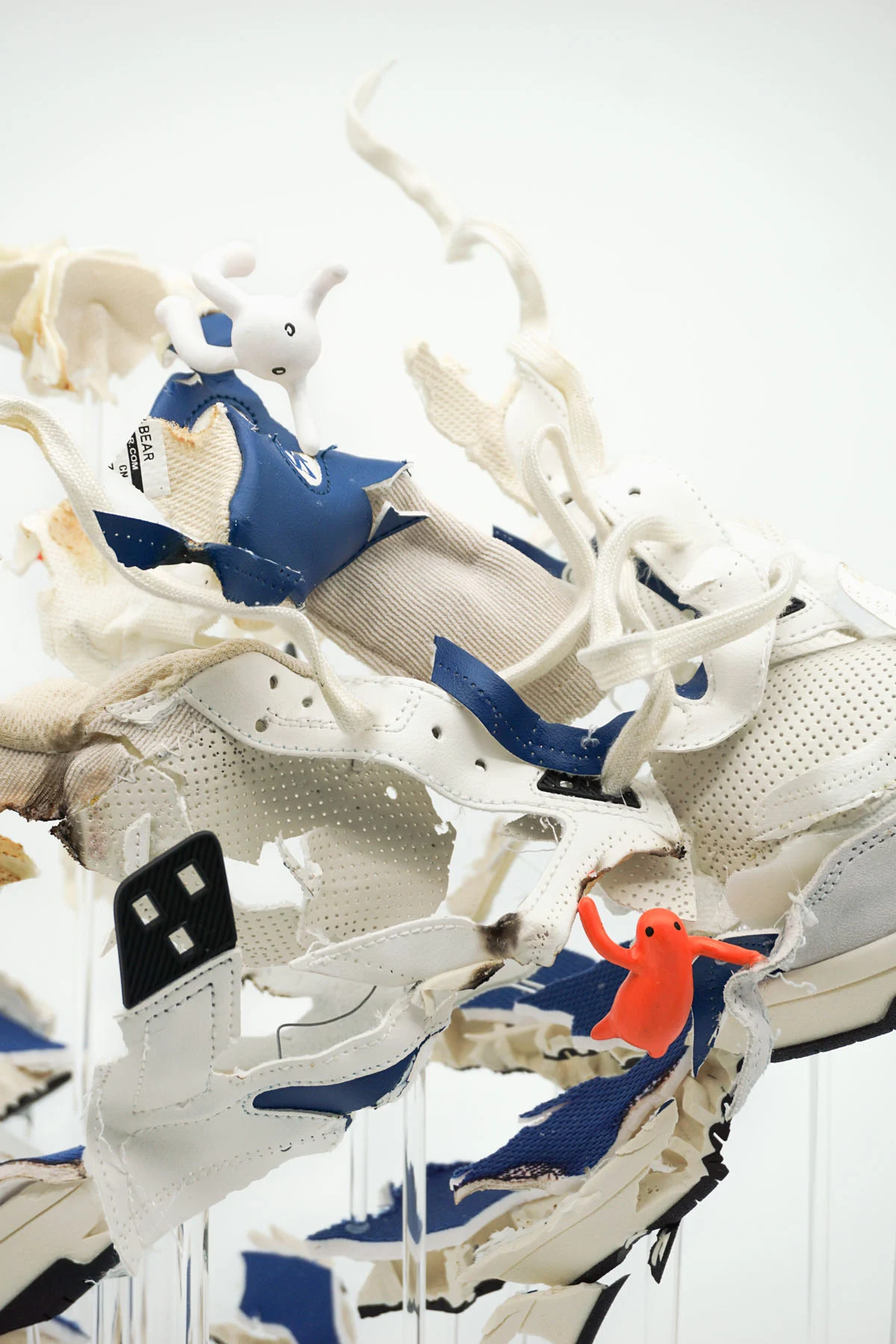
Her social media persona—which has amassed 200,000 followers across Instagram and TikTok—marries her artwork with the playful self-awareness of her incredibly online generation. Her videos are part marketing, part defence. Often her work is dismissed as AI-generated, so Fouri narrates her anarchic creative process in a very funny stream of consciousness, as we see her break, burn, paint, stain, cut, and tear her way through upcycled sneaker after upcycled sneaker in service of her incredibly niche goals, making plenty of mistakes along the way.
Fouri began customizing sneakers during COVID-19: first for her own amusement—creating custom “Futurama”-inspired shoes because she loves the show, her terrible quality paints chipping within an hour of drying—and then as a business, taking orders for bespoke painted trainers. But her droll DIY style conceals a tenacious business-savvy.
“I was at uni during the pandemic, studying economics, and I dropped out after a month so I could do this full time,” she says. “But once I decided to take my work seriously, I needed to build myself as an artist.” Requests for custom sneakers piled up, but despite the backlog, she knew she needed a break to reassess. “I felt like, honestly, if I’m going to leave uni to do this and make art until I’m old and grey, I’m not going to do that by just painting custom anime sneakers for someone on the internet.”
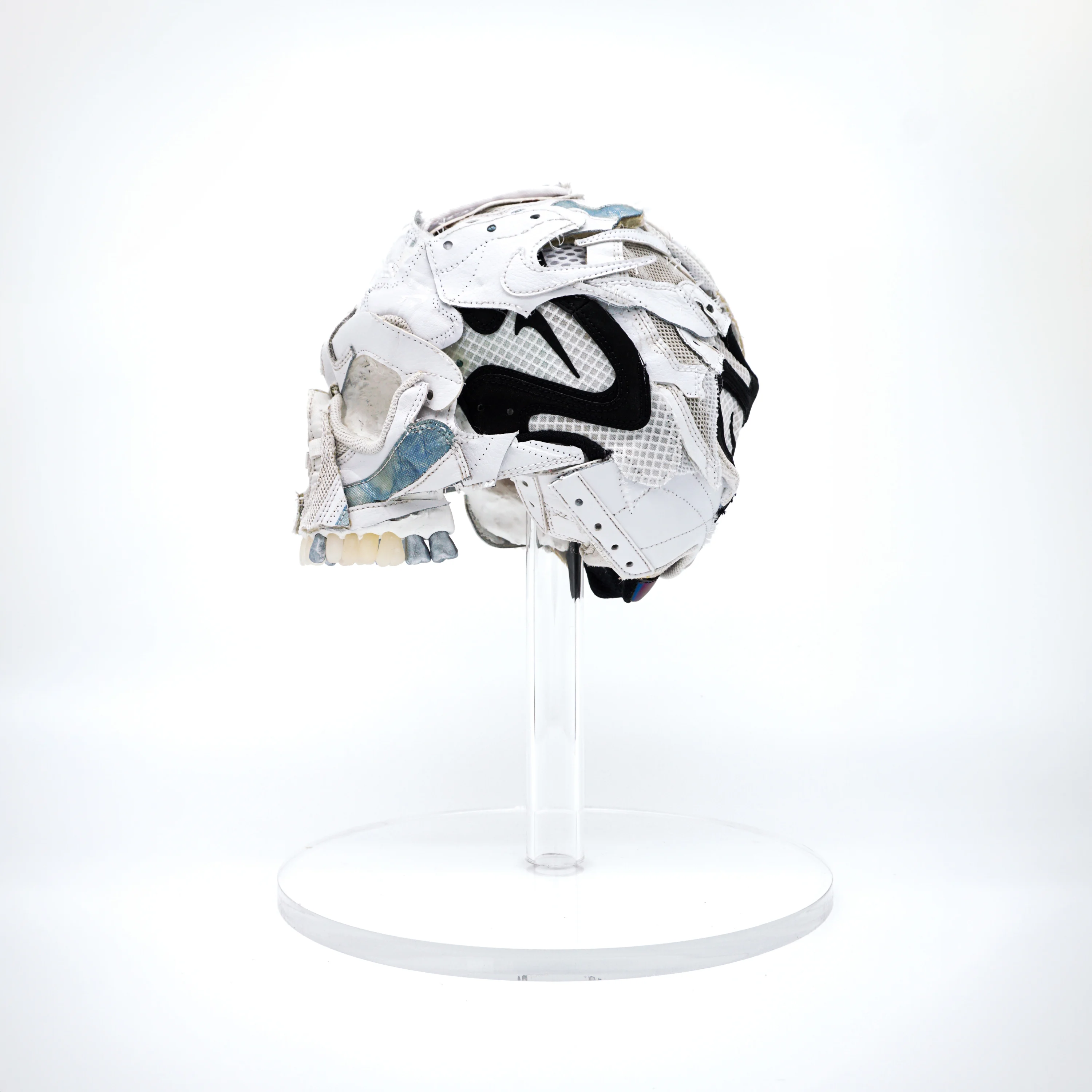
It’s true: the internet was—and is—filled with artists who’ll lovingly recreate a 2D image of a fictional character on your sneakers. But Fouri’s shift has retained the accessibility of the medium while moving beyond just painting shoes. Now she deconstructs and reimagines them entirely, telling a totally different kind of story. It is, however, a path that has proved far harder to follow. “It’s not like there’s a YouTube tutorial telling you how to cut holes into the midsole of an old Air Force One so that you can turn it into an ambulance with the wheels from a Playmobil,” she says.
A large part of the charm and skill of Fouri’s art comes from intuitive and iterative style: She reimagined a sneaker as an ambulance because, one day, she decided the shoe looked a bit like a van and set to work out how to visualise this daydream. She spent a large part of the process thinking: How am I going to do this? And then, through paint, patience, trial, and a quite terrifying learning curve involving a power hole-saw, she brought the piece to life.
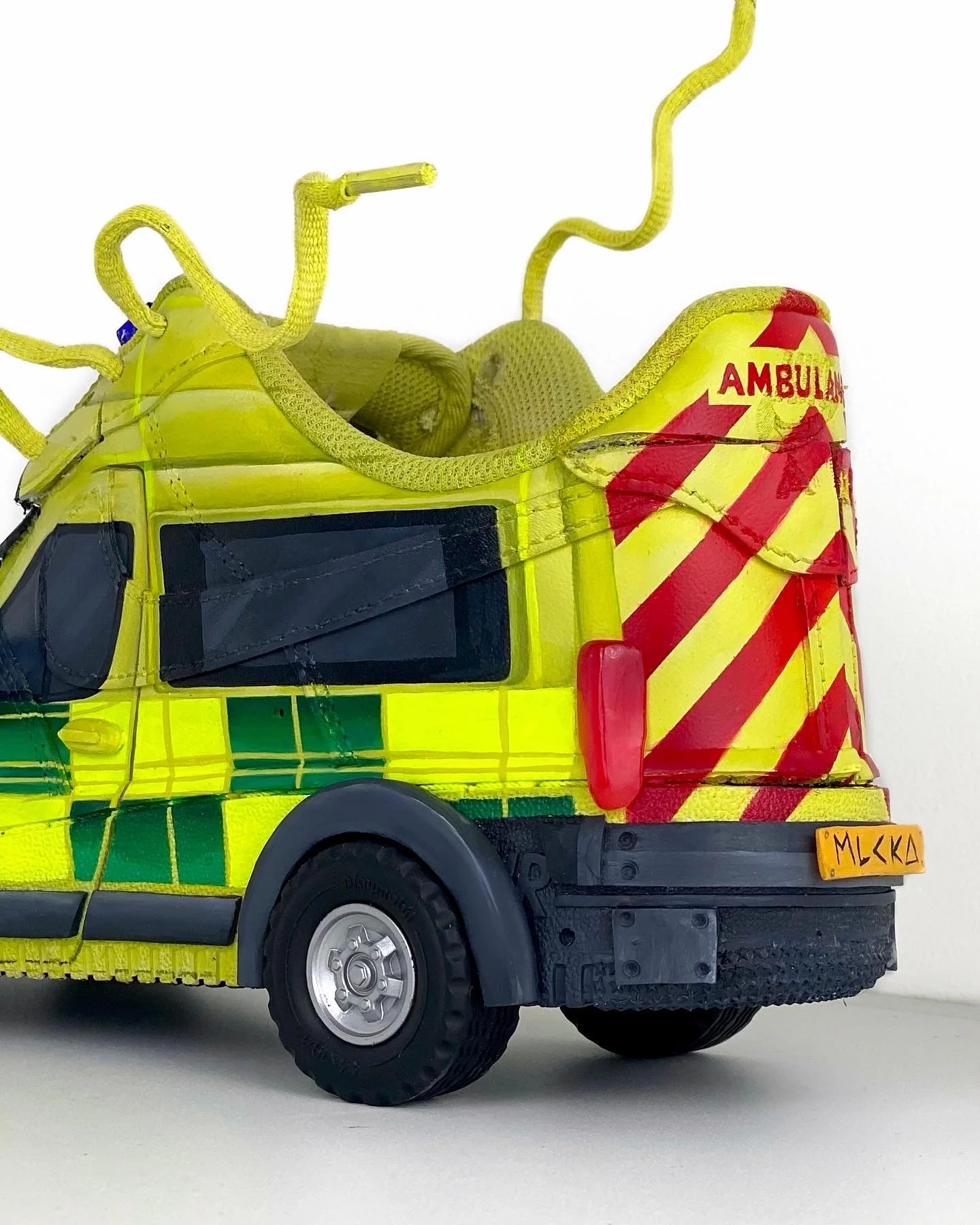
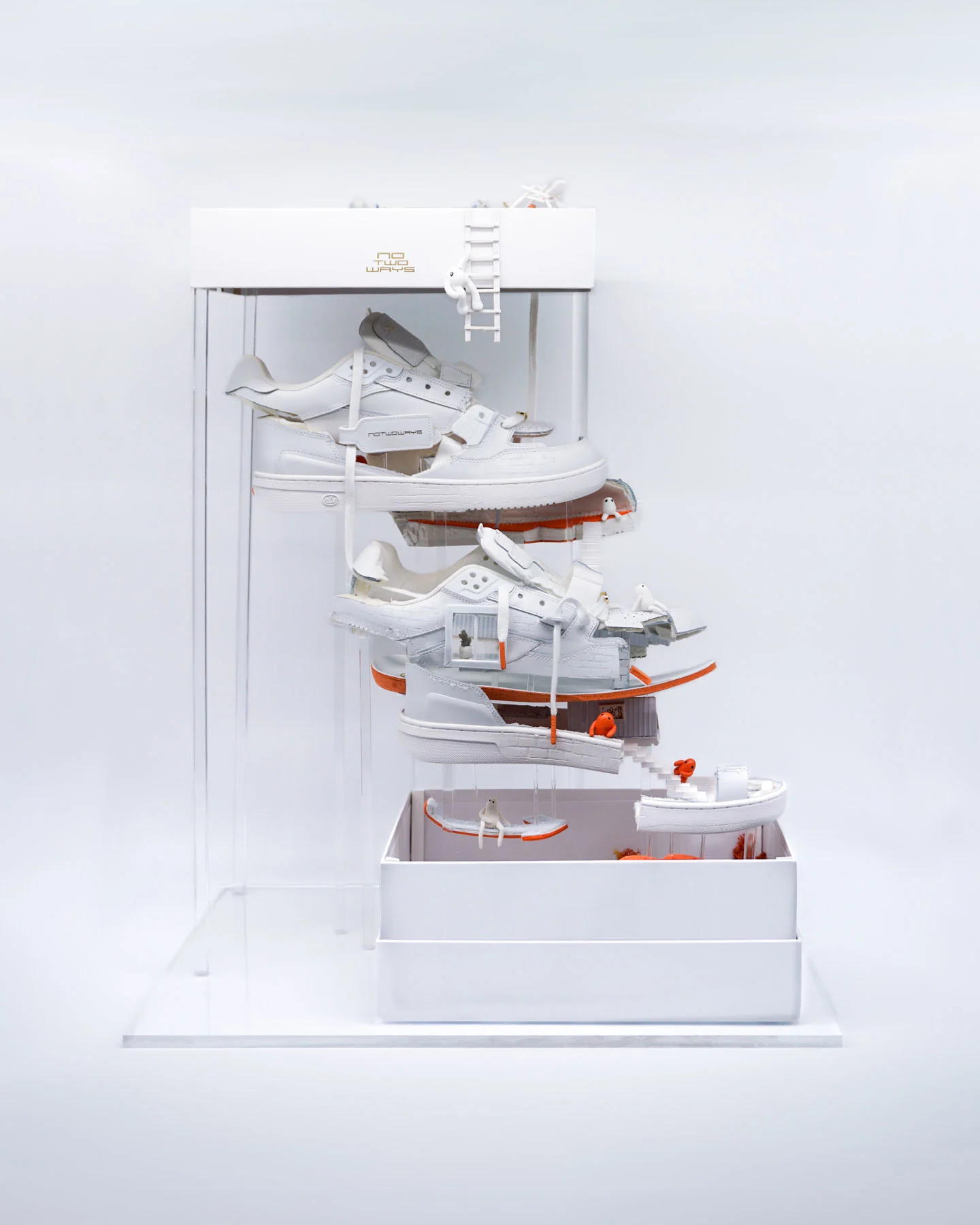
Since the ambulance piece—entitled “Air Force 111,” referencing the number for an NHS medical hotline—her ideas have grown in complexity. Like with the obliterated sneaker sculpture she circles and assesses, deciding if this disembodied eyestay or vamp or lace should move almost imperceptibly over to the right or the left, Fouri is looking at the bigger picture—and the tinkering won’t stop.
“I don’t think I can ever plan my work that far ahead,” she says. “It wouldn’t be organic. I can’t imagine I’ll ever be like, ‘Yeah, I should make this bit two centimeters long and move this bit 70-degrees’. People were starting to do my niche, so I changed it up. I’m never afraid of that because I know I can always think of new ideas and execute them. I just do what I think will look good.”

